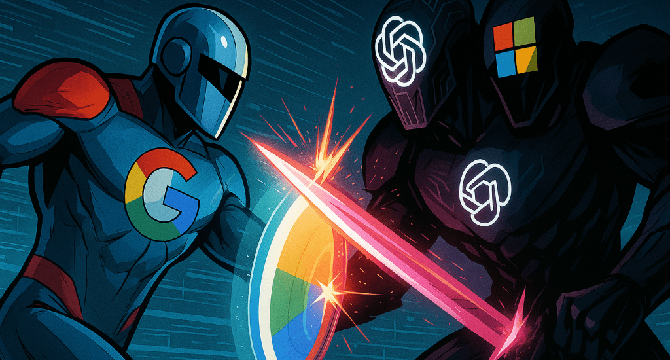VentureBeat
3w
171

Image Credit: VentureBeat
The new AI calculus: Google’s 80% cost edge vs. OpenAI’s ecosystem
- The field of generative AI continues to advance rapidly, with OpenAI and Google introducing new powerful models such as GPT-4.1 and Gemini 2.5 Flash respectively.
- Choosing an AI platform involves considerations beyond just model benchmarks, impacting core compute costs, agent development strategy, model reliability, and enterprise integration.
- Google holds a significant cost advantage over OpenAI due to its custom Tensor Processing Units (TPUs), allowing it to run AI workloads at a fraction of the cost.
- The cost efficiency advantage of Google's hardware is estimated to be 4x-6x per unit of compute compared to OpenAI's reliance on high-end Nvidia GPUs.
- Google's Gemini models are priced significantly lower compared to OpenAI's o3, offering enterprises better long-term Total Cost of Ownership (TCO) and intelligence per dollar.
- Google and OpenAI pursue different strategies for building and deploying AI agents, with Google focusing on interoperability and an open ecosystem, while OpenAI prioritizes tight integration within its own stack.
- Model comparisons show that OpenAI's o3 currently outperforms Gemini 2.5 Pro in some benchmarks, but the difference lies in their distinct trade-offs and adoption based on enterprise infrastructure and workflows.
- Google emphasizes deep integration for existing Google Cloud and Workspace customers, while OpenAI, through Microsoft, offers broad accessibility and market reach.
- The strategic difference between Google and OpenAI/Microsoft extends beyond model capabilities, with compute cost efficiency emerging as a critical long-term differentiator favoring Google's vertically integrated TPU strategy.
- Enterprise technical leaders must evaluate these ecosystems based on their long-term TCO implications, agent strategy, model reliability, existing technology stack, and application needs to make informed decisions.
- The battle between Google and OpenAI demonstrates the multifaceted complexities of AI platform choices, reflecting strategic bets, advantages, trade-offs, and economic implications for enterprises.
Read Full Article
10 Likes
For uninterrupted reading, download the app